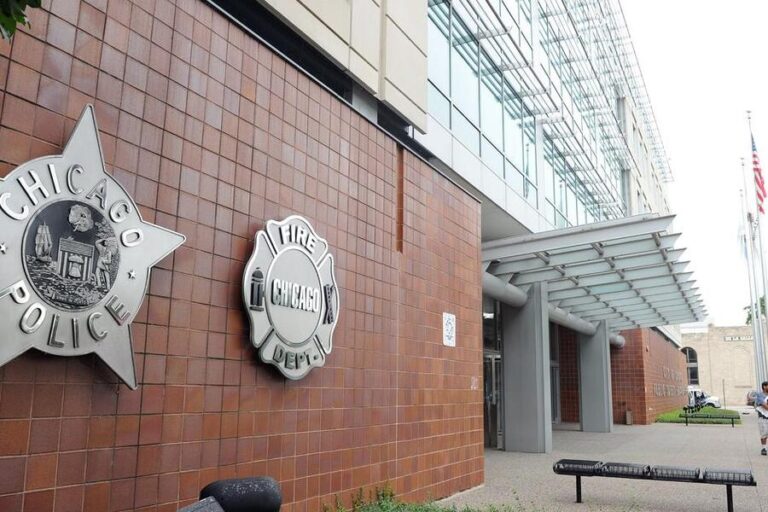As President-elect Donald Trump’s administration prepares to implement mass deportations, Chicago has become a key battleground in the national debate over immigration enforcement. With Trump’s appointed “border czar,” Tom Homan, labeling the city as “ground zero” for their deportation agenda, the Chicago Police Department (CPD) has issued a clear directive on how officers will navigate the contentious issue.
A recently distributed CPD advisory outlines the department’s stance on “responding to incidents involving citizenship status.” According to the advisory, CPD officers will not participate in federal immigration enforcement unless it involves an immediate public safety concern or legal violation. Officers are explicitly barred from stopping, arresting, or detaining individuals solely based on their immigration status.
This approach aligns with Chicago’s Welcoming City Ordinance, a local measure designed to protect undocumented immigrants from federal actions. “You can’t pick up people on the street just because they look Hispanic and wonder if they’re here legally or not. That’s not how the law works,” explained CBS News Chicago Legal Analyst Irv Miller.
The advisory also mirrors the Illinois TRUST Act, which prohibits state and local law enforcement from cooperating with U.S. Immigration and Customs Enforcement (ICE) unless there is a federal criminal arrest warrant. This means that even if ICE issues a detainer—a request to hold an individual for 48 hours until federal agents arrive—CPD cannot comply unless there is a warrant.
Despite these local protections, federal law complicates the matter. A federal statute criminalizes “concealing, harboring, or shielding” undocumented immigrants, carrying penalties of up to five years in prison. Critics argue that Chicago’s policies may conflict with these federal regulations, raising legal and ethical concerns.
Alderman Ray Lopez (15th) has criticized the CPD’s stance, arguing that it restricts officers from addressing public safety issues linked to immigration violations. Lopez is proposing changes to the Welcoming City Ordinance that would allow CPD to cooperate with federal authorities in specific cases. These exemptions would apply to individuals arrested or convicted of crimes involving gang activity, drug trafficking, prostitution, human trafficking, or sexual offenses against minors.
“Only in cases where individuals choose to commit crimes—gang-related, drug-related, prostitution-related, or sex crimes against minors—would we consider working with the federal government,” Lopez said, defending his proposal as a targeted approach to protect public safety.
Lopez’s proposal has faced pushback from immigrant rights advocates, who warn it could lead to racial profiling and undermine trust between immigrant communities and law enforcement. Critics argue that allowing police to engage in immigration enforcement based on arrests rather than convictions poses due process concerns.
“Policies like this create fear within immigrant communities, deterring people from reporting crimes or seeking help,” said one advocate. “It jeopardizes the safety of everyone by eroding trust in the police.”
The CPD has reaffirmed its commitment to community policing and the principles of the Welcoming City Ordinance. “The Chicago Police Department enforces the Municipal Code of Chicago, which includes the Welcoming City Ordinance. CPD does not document immigration status and, by the ordinance, does not share information with federal immigration authorities,” the department stated. “We will not intervene or interfere with any other government agencies performing their duties.”
This policy aims to foster trust within Chicago’s diverse communities, ensuring that residents feel safe cooperating with police without fear of deportation. By focusing on local public safety rather than federal immigration enforcement, CPD seeks to maintain its role as a protector of all Chicagoans.
Trump’s administration has made no secret of its intent to target sanctuary cities like Chicago. Homan’s comments underscore the federal government’s focus on enforcing immigration laws aggressively, particularly in cities that have adopted policies to protect undocumented residents.
As the nation watches, Chicago’s handling of this issue could set a precedent for other cities grappling with the balance between local autonomy and federal mandates.
The Chicago City Council is expected to debate Lopez’s proposed ordinance, which could reshape the city’s approach to immigration enforcement. The outcome will not only impact the city’s immigrant communities but also define its relationship with the federal government under Trump’s administration.
For now, the CPD’s position remains firm: Chicago will uphold its status as a welcoming city, prioritizing the safety and trust of its residents while navigating the complexities of federal immigration policies.
